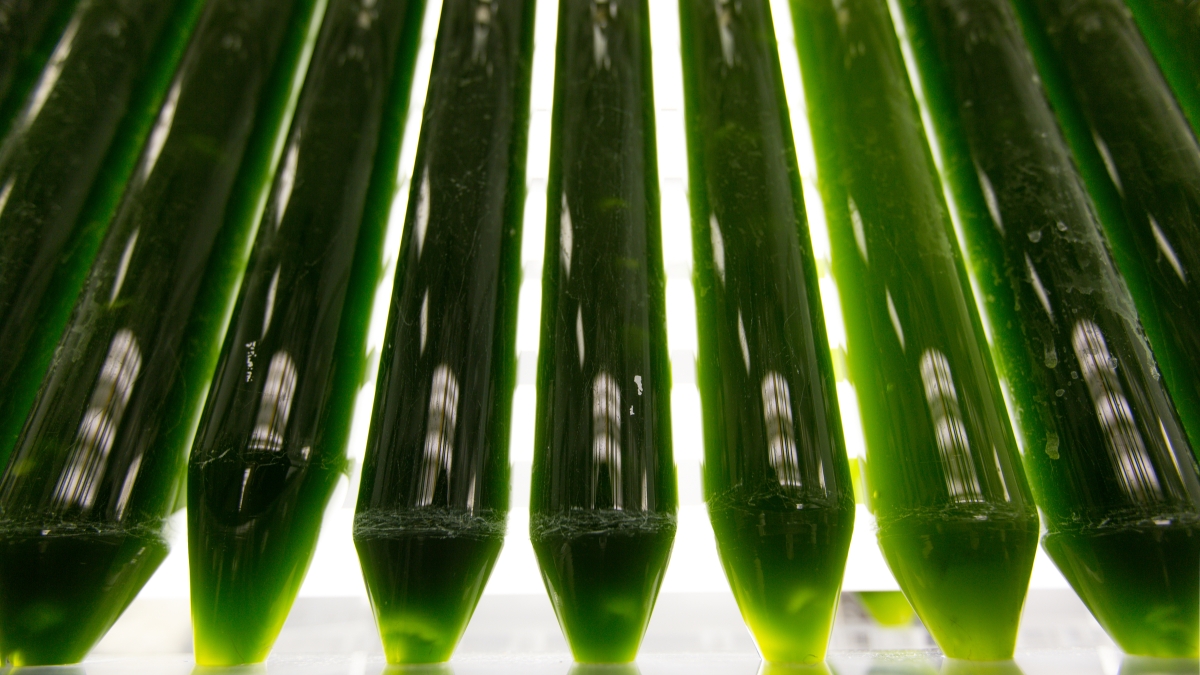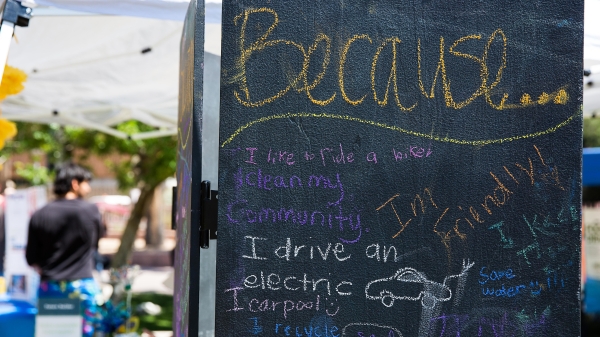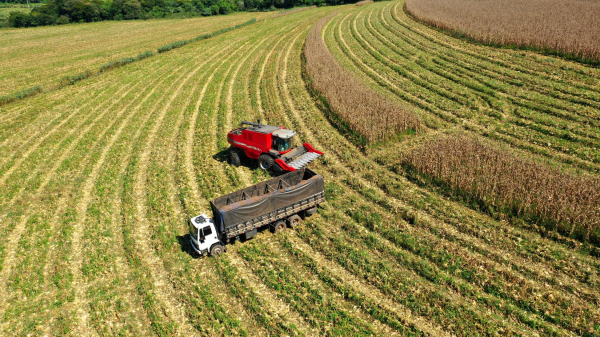ASU biofuel research part of $10M Department of Energy funding
Two projects to focus on algae, cyanobacteria

Photo by Charlie Leight/ASU Now
Two Arizona State University biofuel projects are among six nationwide receiving $10 million from the U.S. Department of Energy to explore innovative solutions in bioenergy.
The six projects will support the Bioenergy Technologies Office's work to develop renewable and cost-competitive biofuels from non-food biomass feedstock. This funding will also support the development of a more robust bioeconomy, which can create green jobs, spur innovation, improve the environment and achieve national energy security.
ASU’s research projects approach the question from two different angles:
- Algae: This project will develop mixotrophic algae that can consume both CO2 and cellulosic sugars and significantly improve algal biomass growth. These heat-tolerant strains will be grown in photobioreactors, potentially reducing evaporation and eliminating the need for cooling. The potential could reach five times the current algal production rates — which would significantly reduce the cost of enclosed algal cultivation systems and will boost total fuel potential, especially in the Southwestern United States.
- Cyanobacteria: This project will engineer cyanobacteria for the production of ethyl laurate, which is easily converted to "drop-in" ready (that is, compatible with existing infrastructure) biofuels or bioproducts. This uses carbon dioxide (CO2), water and light as the main inputs, and does not waste carbon and energy by limiting the amount of biomass produced. This is a “one-stop-shop” cyanobacterial platform that generates liquid transportation fuel from CO2 and water with sunlight as the energy input. The proposed project is expected to lead to an economically competitive yield of an immediate biofuel produced directly from CO2 under the influence of sunlight.
Also in cyanobacteria news this week, ASU is host to an international workshop exploring the latest research in the field May 19-22 in Tempe. The event is focused on providing young scientists with the opportunity to present and discuss their work. Keynote lectures, providing a broader overview, will be giving by Shota Atsumi, University of California – Davis; Devaki Bhaya, Carnegie Institution for Science; Cheryl Kerfeld, Lawrence Berkeley Laboratory / Michigan State University; Jack Meeks, University of California – Davis; and Himadri Pakrasi, Washington University.
Read more about other algae research at ASU here.
More Environment and sustainability

Earth Day celebrations focus on making our planet a priority
On April 22, Earth Day is celebrated across the country and in nearly 193 countries around the world. Arizona State University…

ASU scientist studies how bans, regulations on food technology affect consumer acceptance, perceptions
How do people process scientific developments with outside influences, warnings, biases and others’ opinions filtering in? That…

ASU team's research leads to new law protecting mobile-home dwellers
Arizona Gov. Katie Hobbs signed a law earlier this month that guarantees mobile-home owners’ right to install cooling measures,…